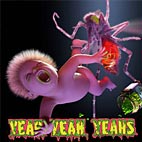As Christmas approaches, so do the lists. Yes, it’s holiday season, but it’s also ranking season; each and every year, bloggers, music critics, and your Average Joe music listener all compile lists of their favorite musical works of the year. Typically, there’s a preface included, which reads something along the lines of “this was a great year for music, so choosing these picks was extremely difficult!” This introduction is about as guaranteed as the mere existence of the list itself, because, well, those who devote time and effort to discovering (and hopefully enjoying) new music know that it’s rare that, at any point in time, a dearth of it exists.
In light of this wonderful wealth of music, don’t fret if some of your favorite songs of the year don’t wind up on this list; there exists a perpetual abundance of art, far too much for any one human being to perfectly and fully absorb, so it’s wholly possible that great works won’t achieve the appreciation that many believe they merit. That said, notoriously popular picks such as “Get Lucky” might not be found here, although such omissions stem from indifference rather than malice. Also, lists convey opinions rather than objective fact, and, as Sly Stone once said, “Different strokes for different folks.” Anyway, without further ado, let’s reflect on this year and twenty of the many great songs it brought us.
Also check out our Best Albums of 2013 list
Way Too Indie’s Top 20 Songs of 2013
#20 – Lemonade: “Skyballer”
You’re not to be blamed if your first reaction to seeing this song here was, “These guys are still around?” A buzz band five years ago, Lemonade has slowly lost the attention of the blogosphere since then. Given their release of the single “Skyballer” this year, it’s tough to figure out why they’ve faded from the spotlight. One of the year’s mostly outrightly sweet songs, “Skyballer” is as thin as a string pulled from a summer t-shirt, and sounds exactly like its single’s artwork looks. Its luxuriant synths and ethereal vocals unspool over the course of six glimmering minutes, each of which is as likely to electrify as it is to tranquilize.
 Listen to Lemonade: “Skyballer”
Listen to Lemonade: “Skyballer”
#19 – Haim: “If I Could Change Your Mind”
Listeners and
critics alike warn of the young, center-of-attention artist’s mediocre debut album, grounded by amazing singles but completely void of spark elsewhere. With four singles preceding the release of their first full-length, Haim seemed destined to fall into this trap; “If I Could Change Your Mind”, not one of these singles, testifies to their avoidance of this supposedly common error. Flushed by intimately pretty guitars, Danielle Haim’s seductive voice delivers with full compassion. Granted, this is a pop song in the strictest sense; a typical intro-verse-chorus-verse-chorus-bridge-chorus-outro structure forms its backbone. Yet “If I Could Change Your Mind” comes off soothing and irresistible, a reminder that, despite the critical extolment of experimentation and uniqueness, a straightforward pop song can strike just as firmly.
 Listen to Haim: “If I Could Change Your Mind”
Listen to Haim: “If I Could Change Your Mind”
#18 – Jagwar Ma: “The Throw”
Let’s look back over the past five or six years and extract some of the biggest names in neo-psychedelia: Tame Impala, Yeasayer, Animal Collective. Facets of all these acts’ music soar through Jagwar Ma’s “The Throw,” an understated masterpiece of the ever-evolving genre. Animal Collective donates the Beach Boys-esque harmonies that faintly back the chorus; Tame Impala contribute the distant guitar bounce forming the track’s first minute or so; Yeasayer inspire the cathartic dance percussion unleashed in the song’s latter half. “The Throw” begins unassumingly, and ends with the force of all its forebears, sounding believable the entire way through. Soon enough, Jagwar Ma might be up there with the very names that inspired them.
 Listen to Jagwar Ma: “The Throw”
Listen to Jagwar Ma: “The Throw”
#17 – Foxygen: “On Blue Mountain”
It’s unlikely that Lou Reed (R.I.P. to one of the most influential musical figures of modern times) spent his final months listening to Foxygen, of all bands, but he’d certainly be proud of this duo if he ever heard their songs. “On Blue Mountain”, the third track on their phenomenal sophomore album
We Are The 21st Century Ambassadors of Peace and Magic, runs with the swagger of some of the Velvet Underground’s greatest moments, yet remains a wholly individual work. Initially centered on vocalist Sam France’s near-breaking, not-quite-sung vocals, the song quickly ascends into a piano- and overdriven-guitar-dominated shuffle. After its first chorus, it settles somewhat again only to ascend back to its prior state as a frantic, glorious mess. This mess expands into a classic call and response bit, and develops wonderfully into six minutes of retrospective glamour. Who says rock ‘n’ roll is dead?
 Listen to Foxygen: “On Blue Mountain”
Listen to Foxygen: “On Blue Mountain”
#16 – Boards of Canada: “Nothing Is Real”
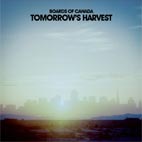
Over their sporadic 15-year career, Boards of Canada (who are not, in fact, Canadian; rather, they’re Scottish) have proven time and time again that music can convey heavy emotions with little to no words. Critics have identified their music as emphasizing the themes of nostalgia and longing in particular; “Nothing Is Real”, the most affecting track on fourth album
Tomorrow’s Harvest, may be the duo’s greatest refinement of these feelings. Driven by an incredibly bleak, hazy piano line that repeats over its entirety, “Nothing Is Real” aches chillingly and dismally. Even more harrowing than the cyclic sounds are the blurred vocal samples that slowly rise about halfway through the track. Backed by the eerie, sparse pianos defining the song, the words spoken feel disturbingly familiar despite their near-unintelligibility. After only forty seconds, the voices fade into silence, and, in an instant, it truly feels like nothing is real.
 Listen to Boards of Canada: “Nothing Is Real”
Listen to Boards of Canada: “Nothing Is Real”
#15 – Glasser: “Exposure”
For a song titled “Exposure”, this track by Glasser, real name Cameron Mesirow, doesn’t reveal too much about its creator. Rather than clearly distinguishing its writer, the song marks its singer’s metamorphosis (“a modern trouble,” according to this song) into a new-era Björk. Mesirow has readily admitted many times before that Björk is one of her formative influences, but never before has she echoed her progenitor so clearly. While other musicians might falter for so boldly mimicking their forebears, Mesirow’s blatant borrowing of sounds and themes (wintry synths, mechanical percussion, mysterious lyricism) from
Homogenic– and
Vespertine-era Björk make this track her most exciting yet.
 Listen to Glasser: “Exposure”
Listen to Glasser: “Exposure”
#14 – Saint Pepsi: “Better”
Saint Pepsi, on the other hand, is someone who could use some Exposure. Although Stereogum ran a “Band to Watch” feature on Ryan DeRobertis’ pet project this summer, his music has yet to circulate much farther than Bandcamp electronic circles (although a slew of recent NYC shows should certainly help to expand his fanbase). What makes DeRobertis a standout amongst similar underground electronic musicians is the massive disco and 70’s influences that fill his music, and on no song is this more evident or catchy than on “Better.” Funky brass samples and bass guide this song through a intro not too far removed from something Toro Y Moi would write, and lead into a modern disco song guided by a sample that passionately sings, “Girl, I can make it better for you!” Luckily for DeRobertis, though, not much can make this song better.
 Listen to Saint Pepsi: “Better”
Listen to Saint Pepsi: “Better”
#13 – Disclosure: “When a Fire Starts to Burn”
Disclosure’s music hasn’t infiltrated pop radio in any way, yet in 2013, “When a Fire Starts to Burn” was as ubiquitous as “Get Lucky”; frankly, it’s a far better dance song. Whereas “Get Lucky” merely rehashes ground already covered by its creators, “When a Fire Starts to Burn” has no back-catalog to be compared to; it’s the first song on Disclosure’s summer debut
Settle (“Intro” is a spoken word prelude to this track). Rather than retreading their own short past, on “Fire”, Disclosure turn to the works of others: the track immediately states the duo’s UK garage and Chicago house influences. The song’s thick synths and snarling vocal samples deliver a thoroughly maniacal, club-ready anthem that would be just as huge thirty years ago as it is today.
 Listen to Disclosure: “When a Fire Starts to Burn”
Listen to Disclosure: “When a Fire Starts to Burn”
#12 – Speedy Ortiz: “Tiger Tank”
Speedy Ortiz are far from the first DIY group to combine witty, uncompromising lyricism with slamming guitars and punk ethos (anyone remember PJ Harvey?). However, few acts of the modern garage rock generation have crafted a piece as purely visceral as “Tiger Tank.” The feedback that opens the song instantly develops into a furiously pounding, broodingly sluggish guitar riff that dies down a bit in the verses to accommodate vocalist Sadie DuPuis’ self-deprecating lyricism. Suspiciously clean guitars underpin lyrics as clever and irreverent as “My mouth is a factory for every toxic part of speech I spew” until the chorus reestablishes the muddy, distorted guitars of the intro, whose riff pops up again after every chorus. A moody, cynical tension runs through “Tiger Tank,” exploding forward as frequently as it quietly recedes; the balance between the two make it a viciously addicting gem.
 Listen to Speedy Ortiz: “Tiger Tank”
Listen to Speedy Ortiz: “Tiger Tank”
#11 – Darkside: “Paper Trails”
I’ll admit that when I first saw this band name, I thought of Star Wars rather than Pink Floyd. What a mistake to make: this duo’s sound is entirely indebted to the latter entity. This fact is more obvious on songs from their debut,
Psychic, that aren’t “Paper Trails”, yet it’s this song that represents their best moment. Although there’s still plenty of David Gilmour to be heard in the song’s loose guitar fills, the center of attention is Nicolas Jaar, one of 2011’s biggest buzz boys as well as one half of Darkside. The sexy, deep, moody electronic music Jaar has cultivated in his solo career manifests touchingly here, emerging in the form of subtle synthetic bubbles and the characteristic sensuality of Jaar’s thick, Smog-like voice. Surrounded by Dave Harrington’s lucid yet weightless guitars, these elements coalesce into a beautiful, inescapable soundscape that’s more than likely to draw listeners in to the dark side.
 Listen to Darkside: “Paper Trails”
Listen to Darkside: “Paper Trails”
#10 – CHVRCHES: “Lies”
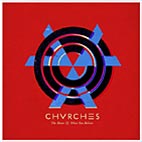
After a year of immense hype, CHVRCHES dropped a debut,
The Bones of What You Believe, that contained about as many single-worthy tracks as there are fingers on most peoples’ two hands. Almost every song on the album is absolutely outstanding and addicting, but “Lies” best represents why CHVRCHES merit the buzz surrounding them. Massive drums and subtly apocalyptic synths blow the song open, and never recede thereafter, even when vocalist Lauren Mayberry’s high-pitched, soaring, striking voice enters in the verse. The chorus increases the dynamics to an even more ridiculous degree, its earth-shattering percussion providing the proper stomp to Mayberry’s mountainous vocals. “Lies” continually smacks listeners square in the face over its four minutes, but its true force is best felt when, as the short, calm interlude after the second chorus quickly draws to a close, the humongous, gargantuan percussion, synths, and vocals all slam back into place, returning with a force that proves this trio isn’t just some blog sensation.
 Listen to CHVRCHES: “Lies”
Listen to CHVRCHES: “Lies”
#9 – The Virgins: “Flashbacks, Memories, and Dreams”
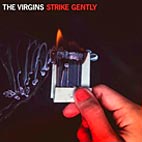
It wasn’t meant to last. It took The Virgins five years to follow-up their 1970s-disco-inspired, dance-punk self-titled debut, and when they did, only eight months passed before the band broke up. Thankfully, their final document,
Strike Gently, left fans with a plethora of amazing 70s-inspired psychedelic/lounge/indie rock, yet the album went dreadfully overlooked by all corners of the music community. Probably the best of the CD’s many gems is “Flashbacks, Memories, and Dreams”, a track that Ariel Pink could have included on his 2010 album
Before Today without anybody blinking an eye. Minus the avant-garde tendencies, “Flashbacks” is Ariel Pink retro-worship in full swing: it sees the Virgins using sexy, lucid guitars and a somewhat lackluster vocal drawl to hail the 1970s. It sounds like a smoky lounge depicted in some classic movie, and provides sheer joy in its musical nostalgia. Hopefully, the band’s own flashbacks and memories on their days together will feel as good as this song does.
 Listen to The Virgins: “Flashbacks, Memories, and Dreams”
Listen to The Virgins: “Flashbacks, Memories, and Dreams”
#8 – Vampire Weekend: “Hannah Hunt”
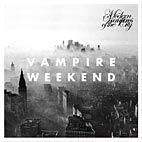
In September, about four months after Vampire Weekend released their incredible third album
Modern Vampires of the City, a friend of mine mentioned that “Hannah Hunt” is one of his favorite poems. This sentiment at first surprised me, since many sets of lyrics often reduce poetry to a trivial slew of commonplace words and mediocre imagery. But my friend was right: “Hannah Hunt”, like so many of Ezra Koenig’s writings, reads like a tragic poem, its heartbreaking words held together by the bleakest instrumentation to date in Vampire Weekend’s previously bright, upbeat catalog. As Koenig laments his travels with Hannah, a barren, desolate soundscape of crying pianos, faint bass, subtle synthetic elements, and nearly lifeless percussion envelop his and co-genius Rostam Batmanglij’s sorrowful voices. The song creeps forward ever so-slowly, suggesting an upcoming release of energy, a giant burst of catharsis; this promise is fulfilled with just over a minute left in the song, when the drums explode forward, the pianos reemerge as the center of attention, and guitars finally emerge as a hazy, squealing, pleading force. “If I can’t trust you, then damn it, Hannah!/There’s no future, there’s no answer,” Koenig soon shouts through a few vocal filters, and the aching in his voice is enough to liquefy the most solid of souls. It’s a moment so powerful that it sells the whole damn song, which many fans, including myself, agree is their best yet.
 Listen to Vampire Weekend: “Hannah Hunt”
Listen to Vampire Weekend: “Hannah Hunt”
#7 – Savages: “She Will”
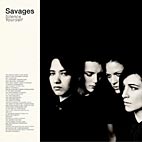
To label “She Will” the most immediate song on Savages’ fierce, overblown debut might be a bit deceiving, since
every song on
Silence Yourself is immediate. Yet “She Will” clearly stands out as the album’s finest moment, and one of post-punk’s most thrilling tracks in years. Its first few seconds perfectly establish the roaring, demonic instrumentation that encompasses the rest of the track. Arena-sized percussion, towering guitars, and violent, angry bass underlie Jehnny Beth’s afflicted vocals, which take a fragile tone in the verses only to explode with fire during the choruses. Ultimately, though, it’s the last thirty-five seconds that seal the deal: the bass swells in volume, Beth’s voice transforms into a demonic plea, and the repeated “She will!” slowly loses itself amongst coalescing percussion and guitars, ending in the most visceral shriek to be heard on record in far too long. Never mind the odd lyrics about “forcing the slut out” — with “She Will,” Savages have expunged a being far more devilish.
 Listen to Savages: “She Will”
Listen to Savages: “She Will”
#6 – Arcade Fire: “Reflektor”
Fans knew they’d get their first taste of new Arcade Fire music far before it landed. Arcade Fire announced the date on which the first song from their new album would arrive months in advance, far before the whole Reflektor graffiti campaign kicked off. Upon its title track’s formal release September 9 (it leaked two days earlier, unsurprising given the modern state of affairs), a massive album promotion trail took flight, but the one song already released would prove far more gigantic than anything else on the album.
Even in light of Reflektor‘s often pale musings, its title track stands as one of Arcade Fire’s greatest accomplishments to date. It continues the band’s embrace of disco as hinted by The Suburbs‘ “Sprawl II (Mountains Beyond Mountains)” — actually, it expands this theme much farther than most listeners would have reasonably expected. Marching forward upon “deep African voodoo rhythms that are the language in Haiti,” as vocalist/songwriter Win Butler describes the percussion, “Reflektor” perfectly melds the dance-leanings of producer James Murphy with the cathartic, carrying song structures Arcade Fire perfected on their first three albums. The grandiose instrumentation also present on these albums is restricted to a backing template here, as strings and brass merely paint an outline for these nearly eight minutes of life-sized splendor. It’s Arcade Fire’s longest song to date, and over its course, there are many moments when dancing is as understandable a response as is being too awestruck to move at all.
 Listen to Arcade Fire: “Reflektor”
Listen to Arcade Fire: “Reflektor”
#5 – Kurt Vile: “Wakin’ On a Pretty Day”
When Kurt Vile released “Wakin’ on a Pretty Day” in early 2013, it at first seemed intimidating. Coming from Vile, a ten-minute song not only surprised many people, but also felt impossible. How could Vile possibly extend his signature stoner lethargy over the course of ten minutes without descending into boring drivel? Although he doesn’t completely avoid such gibberish (“Wakin’ at the dawn of day/I gotta think about what I want to say/phone ringing off the shelf/I guess he wanted to kill himself” is one of the most apparently nonsensical verses I’ve ever heard), on “Wakin'”, Vile makes excellent use of his time.
From this song’s opening moments, it’s clear that Vile’s lush guitar tones and Americana-influenced soloing make for pure psychedelic bliss. After an already appealing first four minutes filled with this variation on his typical complacent, chill psych-folk, a brief pause transitions into the song’s second half, the true winner here. The first appearance of what might be the year’s best guitar riff emerges just about thirty seconds into this section: washed in lush, hazy tones, plucked guitar notes bathe the listener in a listless euphoria. There’s nothing exceptional about the riff itself — these notes have been used before, these scales are thoroughly abundant in guitar-based music — but its delivery is riveting. Vile repeats this riff constantly over the course of five minutes, adding minor variations here and there, yet it affects just as strongly each and every time. Nothing to be afraid of here — just sit back and float away.
 Listen to Kurt Vile: “Wakin’ On a Pretty Day”
Listen to Kurt Vile: “Wakin’ On a Pretty Day”
#4 – Moderat: “Milk”
Electronic instrumentalists have absolutely nailed the art of repetition. Think about it: Aphex Twin, Boards of Canada, Autechre — these vastly influential acts have perfected the use of cyclic repetition of the same sounds over the course of song. Although this might sound boring in concept, in execution it often pans out as beautiful, possibly more human than the voices heard in the majority of independent music.
With “Milk,” Moderat can be added to the list of electronic musicians with a steady hand over repetition. “Milk” lasts ten minutes, yet feels much shorter. Perhaps this pseudo-brevity, both a blessing and a curse, stems from how great the song’s repeating bit remains from its first to its last iteration. The clatter of icy percussion, the rise and fall of cold walls of synths, the blurring and refocusing of sampled oohs and aahs: really, these three phrases describe the entirety of the song. Although each featured is layered and de-layered countless times during “Milk”‘s blessed ten minutes, the song never stagnates despite its inherently perpetual nature. Amidst all the repetition, it’s one of the most moving pieces released this year.
 Listen to Moderat: “Milk”
Listen to Moderat: “Milk”
#3 – Jon Hopkins: “Open Eye Signal”

It’s no coincidence that two long electronic instrumentals wound up back to back on this list. “Open Eye Signal”, the early peak of Jon Hopkins’ latest album
Immunity, begins with merely a synthetic whisper, but by its close it takes the form of a paranoid, haunting house track. The ebb and flow of subtly rave-pierced synths dominate the song’s first six minutes, slowly growing in presence until the music simply cannot contain them any longer. Never during this time does the instrumentation lose the eerie catharsis it so inventively deploys, but after these six minutes pass, Hopkins unleashes an entirely more terrifying beast. Slowly pulling the song’s bass out from its bottom, Hopkins reverses “Open Eye Signal” entirely, centering synths with such a strangely slathered tone that they border on incomprehensible. These synths clash with brittle, heavy percussion in the most exciting way possible, providing the track with even more substance than its first six minutes already contained. And seeing how much substance that is, that’s saying a lot.
 Listen to Jon Hopkins: “Open Eye Signal”
Listen to Jon Hopkins: “Open Eye Signal”
#2 – Youth Lagoon: “Pelican Man”

It’s been clear since the very moment Tame Impala released
Lonerism, 2012’s best album by miles and miles and miles, that no modern act would ever replicate its psychedelic brilliance (in regards to “replication,” I’m well aware that
Lonerism is essentially
Sgt. Pepper’s given a 2010s makeover). Although Youth Lagoon’s
Wondrous Bughouse as a whole did not accomplish this in 2013, fifth track “Pelican Man” comes daringly close. Just under a minute of fuzzy, warbled dream pop ambience ascends into bobbing pianos and distantly crunching guitars, paving the way for a soaring, skyward guitar line that would fit in perfectly on
Lonerism. Vocalist Trevor Powers douses himself in filters as his quavering, imperfect voice tells an ambiguous tale lacking an immediately recognizable theme, although the pianos and guitars mentioned earlier quickly return to put his voice to sleep. Hell, even without the context of past psychedelic works to paint this picture, the bonkers sonic palette formed here is inescapable and electrifying. To love “Pelican Man” isn’t to settle for second-best; rather, it’s to succumb to psychedelic purity.
 Listen to Youth Lagoon: “Pelican Man”
Listen to Youth Lagoon: “Pelican Man”
#1 – Yeah Yeah Yeahs: “Sacrilege”
I’ve got an unfortunate feeling that most readers’ reaction to seeing this song atop this list will be a cocktail of anger, confusion, disappointment, and maybe even a loss of respect towards this writer. Mosquito, the Yeah Yeah Yeahs’ fourth album, was one of this year’s most unnecessarily hated-on albums, so it’s certainly possible that people haven’t even given “Sacrilege” a chance, and that they’ll continue not to. Even long-time YYY fans have had difficulty accepting this album, and sometimes this song, as a great piece of art, but it is genuinely my favorite song of 2013. Here’s why.
From the song’s relatively minimal opening moments, it’s clear that Karen O hasn’t lost her ability to alternate between the vilest and purest states of her voice. “Halo! ‘Round his head!” perfectly covers the former terrain, while “Falling for a guy/who fell down from the sky” embraces the latter. Once the percussion picks up and provides the bass (a rare instrument in this trio’s music) with a greater context, Nick Zinner doesn’t take long to throw in a flashy guitar riff similar to the ones for which he’s so well-liked. Zinner brings some murkiness and general mystery to the tone of the chorus; this feeling slowly spreads throughout the remainder of the song (although it had been there since the beginning), culminating in, of all things surprising, the addition of a 24-piece gospel choir.
This gospel choir could have easily felt out of place, but the band instead uses it to initiate the song’s triumphant emotional peak. As Karen O pleads and prays, the choir follows her lead, eventually themselves becoming the leaders when nearly all other instrumentation drops out. It’s a reminder of just how powerful human voices can be, especially in unison, and achieves a victorious feeling that seemingly resolves the tension the song employed in the first place. Sure, it’s a change in direction, but when it’s this resonant, who cares?
 Listen to Yeah Yeah Yeahs: “Sacrilege”
Listen to Yeah Yeah Yeahs: “Sacrilege”



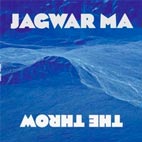
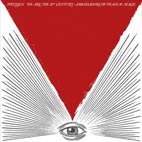


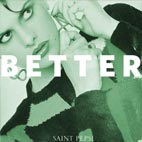
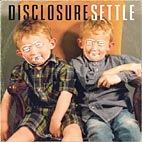
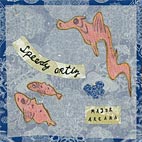
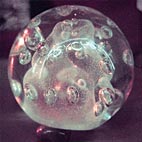





 Listen to Arcade Fire: “Reflektor”
Listen to Arcade Fire: “Reflektor”
 Listen to Kurt Vile: “Wakin’ On a Pretty Day”
Listen to Kurt Vile: “Wakin’ On a Pretty Day”


